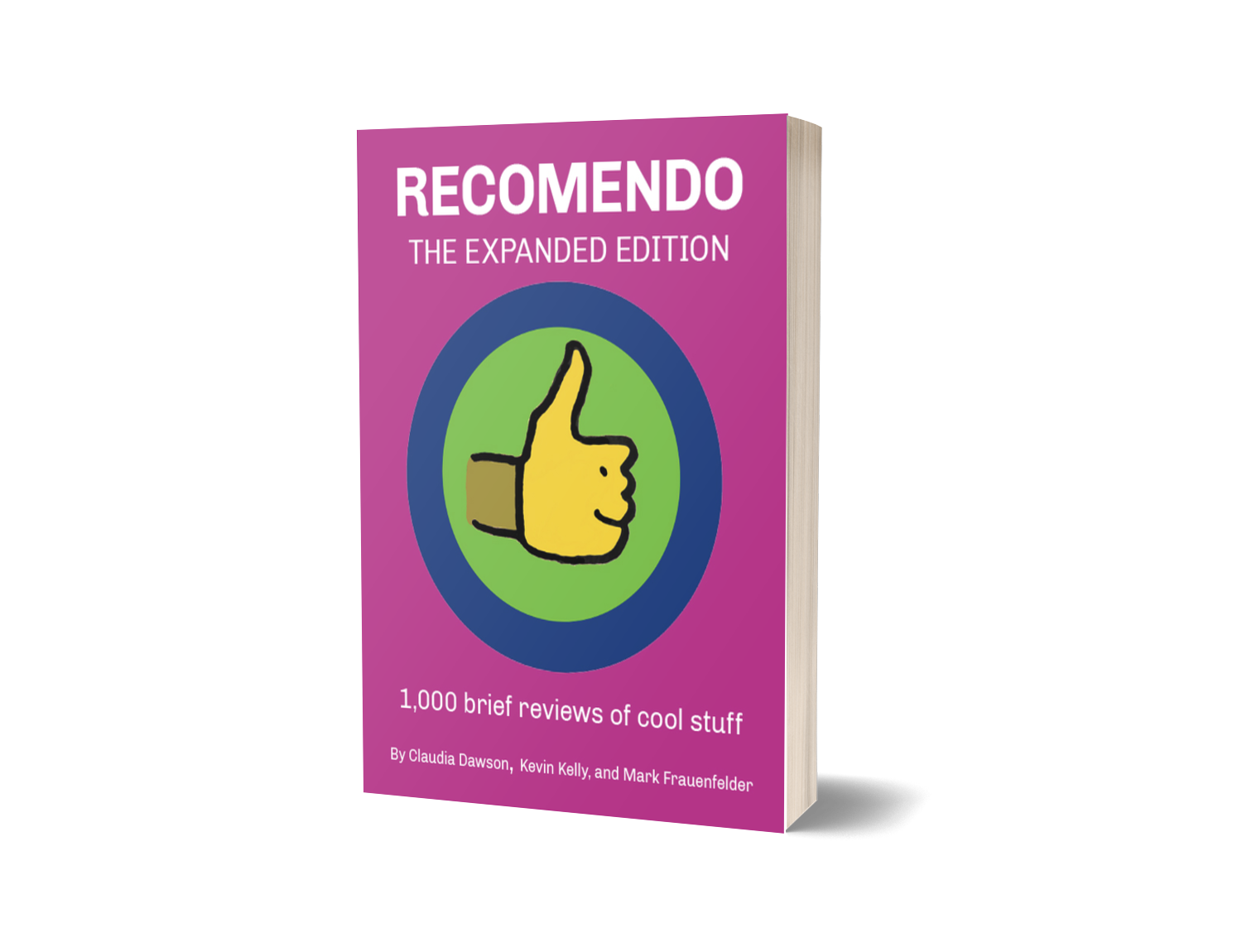Recent recomendos
We launched a free daily email newsletter called Recomendo Deals that alerts you when products we’ve previously recommended in Recomendo and Cool Tools drop to unusually low prices. Here’s how it works: Every day, the system checks thousands of products we’ve recommended over the years against Keepa, a service that tracks Amazon price history. When a product falls 20% or more below its 90-day average price, or hits an all-time low, it surfaces as a deal. These aren’t random products — they’re things we’ve already vetted and recommended. I’ve already purchased a few items myself. It literally takes 20 seconds to scan the 5 to 10 deals that show up each day, and most days there’s nothing I need. But occasionally, something I’ve had my eye on drops to a great price. Give it a try by subscribing here. — MF
By far the best bargain flights to Japan are through a Japan Airlines subsidiary called Zip Air. Our family used it going both ways to Tokyo this holiday and I can highly recommend them. All routes begin or terminate in Tokyo, flying from hub cities in Asia, such as Singapore, Hong Kong, and from select cities in the US. Prices vary widely during the year, but on some weeks this coming spring an economy ROUND TRIP flight from San Francisco to Tokyo is only $283!!!! Of course, they charge for everything from meals, water, blankets, and luggage. But we can manage. And their “lie full flat” seats (business class) are less than $2,000, but also without blankets, pillows, or service. We tried both the economy and full flat seats, and both are worth the small hassles for the ridiculous cheap prices. — KK
This article gathers 35 simple, research-backed practices from sleep specialists, sex therapists, psychologists, nutrition scientists and more, each offering one small habit they personally rely on to support everyday well-being. The whole list is great, and I especially love the reflection on “soft fascination” — turning to simple, almost meditative tasks when there are too many mental tabs open, and letting answers rise on their own. For me, washing dishes is always a meditative reset that clears out mental clutter and restores a sense of spaciousness. — CD
What we now call the English language has been rapidly changing for over a thousand years. The best way to experience this evolution is to watch this video by Simon Roper where the same passage is recited in proto-English, and then repeated in newer versions of Old English every hundred years, until you reach modern English. The game is to see when you begin to understand it. For me it was around 1600 in part. This gimmick, more than any other, gave me an appreciation of what ancestral versions of English were like. — KK
Every night I have multiple, vivid dream adventures, and for the past five years I’ve been writing them down and treating them as a parallel stream of consciousness for self‑reflection, healing, and guidance. The dream teacher who’s helped me the most is author Robert Moss, whose free Substack is a living archive of shamanic “active dreaming” prompts, personal stories, and techniques that make it easy to develop a co‑creative relationship with your dreams. If you’re at all interested in understanding your dream self on a deeper level, I highly recommend subscribing to his newsletter. Two great starting pieces are “Nine Keys to Understanding Your Dreams” and “The Only Dream Expert is You.” — CD
A relative with ADHD brought a NeeDoh to a family gathering, and I couldn’t put it down. Like me, she uses fidgets to focus, and this one is perfect — a soft, stretchy ball filled with a viscous dough-like substance inside a silicone skin. You squeeze, squish, and stretch it, and it slowly oozes back to its original shape. The resistance is deeply satisfying. Her tips: keep it in the fridge to make it harder(and more fun) to squeeze, and when the silicone skin gets grungy, wash it with soap and water, then rub cornstarch over it — good as new. NeeDoh comes in various shapes (balls, cubes, figures) and costs around $5-10. Great for desks, meetings, or anywhere you need to keep restless hands busy. — MF

Check out our Recomendo book available in Black & White or Color.
